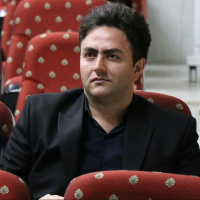INVESTIGATING THE RELATIONSHIP BETWEEN MATH,COMPUTER AND SCIENCE SELF-EFFICACY AND THE ACADEMIC PERFORMANCE OF ENGINEERING STUDENTS
The aim of the present research was to examine the relationship between self-efficacy in mathematics, computer science and engineering students’ academic performance. This research was applied and descriptived and correlational. The population of this research includes all engineering students of Isfahan University of Technology in the academic year 1402-1401 and multi-stage cluster sampling method. Questionnaires used to collect information include mathematical self-efficacy questionnaire (MSES), Murphy, Kuro and Owen self-efficacy questionnaire and Henderson Questionnaire were used to measure science self-efficacy. The validity and reliability of this questionnaire has been confirmed in past researches. In this research, the validity of these questionnaires has been checked and confirmed by subject experts, and its reliability has been confirmed by Cronbach’s alpha. The data obtained from the questionnaires were used by means of descriptive statistics such as mean and standard deviation and inferential statistics such as Pearson correlation and multiple regression. The results of the data analysis indicated that having self-efficacy in mathematics and computers can predict academic performance and science has a correlation with academic performance. Meanwhile, mathematics self-efficacy has the greatest power to explain mathematics performance, followed by computer and science self-efficacy, which has the power to explain the academic performance of undergraduate engineering students.
-
A phenomenological study of sports development in schools and society of Ardabil city from the perspective of teachers and professionals
*, Mohammad Azimi, Morteza Golshani Gahraz, Zahra Khademi Astaneh
Journal of Research in Sport Management and Marketing, Summer 2024 -
A phenomenological study of the challenges governing the issue of managing emotions in schools and providing solutions
, Morteza Golshani Gehraz *, Nasim Rezaei
Journal of Educational Psychology Studies,



